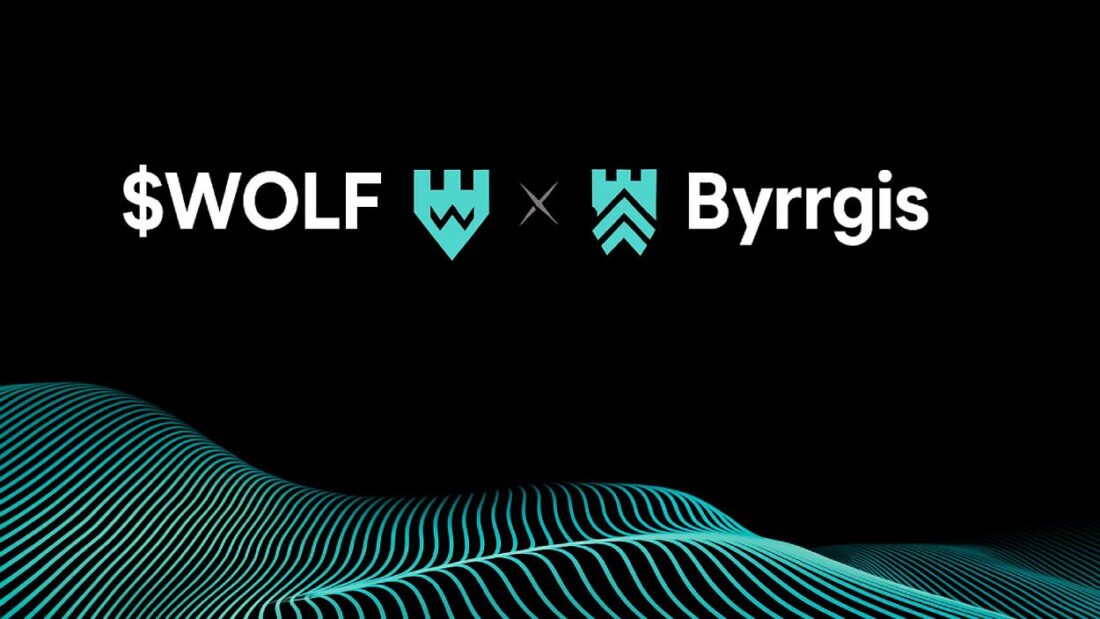Wolf locks over half its token supply following a security incident, signaling a strong commitment to trust, stability, and long-term DeFi growth.
Key Takeaways
- Wolf has locked 57% of its total token supply, worth $13.2 million, for two years using Streamflow.
- The move follows a security breach involving a rogue contractor who exploited Wolf’s ETH bridge.
- A separate incident involved an early investor dumping around 2% of token supply.
- Byrrgis, the infrastructure behind Wolf, is implementing zero-trust security and stricter auditing across its entire DeFi ecosystem.
What Happened?
In response to a recent token bridge exploit and investor sell-off, Wolf has locked 57% of its token supply for two years. This decision is part of a larger initiative to restore confidence, reduce volatility, and create a more transparent foundation for its decentralized finance (DeFi) platform. The lock, worth $13.2 million in WOLF tokens, also signals the full alignment of major holders with the long-term success of the ecosystem.
Wolf Takes Action After Security Incident
In late September, Wolf faced two back-to-back incidents that tested its security and community trust. First, a contractor retained administrative control over the platform’s Ethereum bridge, and instead of handing it over after setup, the individual used it to mint unbacked ETH-WOLF tokens. This unauthorized minting led to a loss of over $600,000 in ETH liquidity.
Shortly after, an early investor declined to join Wolf’s planned community token lock and abruptly sold approximately 2% of the token supply, further shaking community confidence.
These events triggered an immediate and strategic response from the Wolf and Byrrgis teams. The Ethereum bridge was shut down, a forensic review was launched, and the affected areas of the protocol were reinforced to prevent future vulnerabilities.
A 2-Year Lock That Builds Confidence
To ensure stability and regain user trust, over 570 million WOLF tokens, or 57% of the total supply, have been locked through Streamflow for two years. The lock structure allows for a gradual release of just 2.5% after the period, with the option to re-lock afterwards, ensuring long-term alignment with the platform’s mission.
Siraaj Ahmed, , emphasized the importance of this decision, stating:
Robert Freeman, CTO, shared further insight, noting:
The new security framework includes zero-trust principles, limited administrative access, and just-in-time privilege escalations across all services.
Byrrgis Reinforces Security Across the Ecosystem
This initiative is more than just a quick fix. Byrrgis, the infrastructure powering Wolf, is taking a holistic approach to accountability and transparency. With the entire token lock process handled via Streamflow and backed by NDAs, the community can visibly track holdings and vesting schedules.
Amy Cooksey, CMO, highlighted the broader vision:
The platform aims to establish resilience at every level, ensuring community alignment and safeguarding the integrity of the broader ecosystem.
CoinLaw’s Takeaway
In my experience, few DeFi projects bounce back from internal exploits with such bold transparency. Wolf not only acknowledged the issue but went all in by locking over half its token supply. That’s not just crisis management. That’s long-term vision. I found the team’s decision to publicly share every step, from forensic audits to NDA-backed locks, refreshingly rare in a space where silence is more common than answers. If more protocols took this route, DeFi would be a far more trusted landscape.


































































